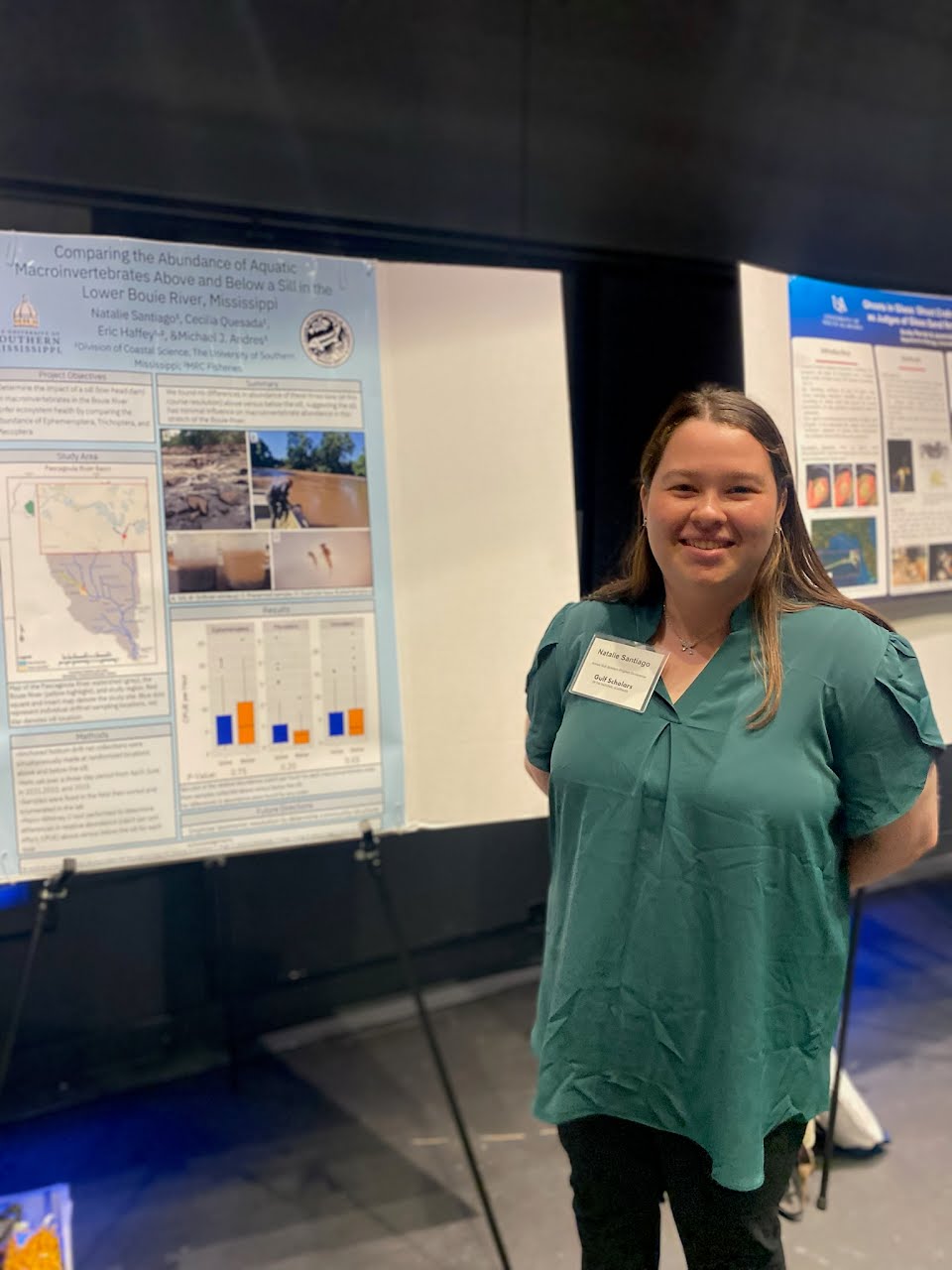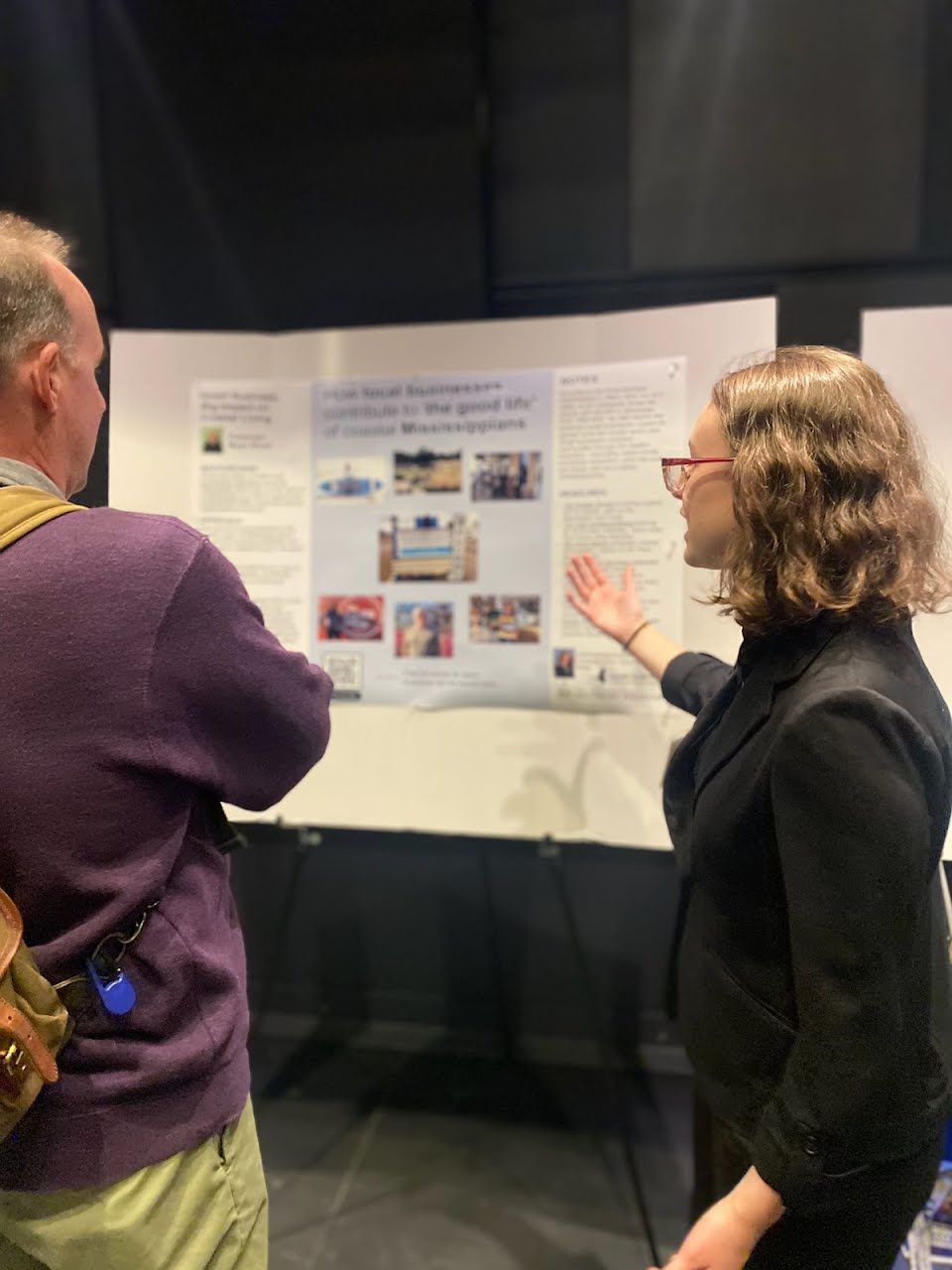Southern Miss Gulf Scholars Program
Students
Are you interested in making the Mississippi gulf coast a better place to live, work, and learn?
The GSP wants to inspire interest and engagement in the sustainability and resiliency of the Gulf Region by building the capacity of our Gulf Scholars to address sustainability and resilience challenges within the region.
If you are interested in becoming a GSP scholar, complete the application below.
Become a Gulf Scholar Faculty Mentor
Faculty mentors will assist Gulf Scholars with academic advising and Gulf Impact Projects. Mentors will ensure Gulf Scholars are enrolled in GSP curriculum courses and help their assigned student(s) create a project centered around regional sustainability and resiliency.
If you are interested in becoming a GSP mentor, complete the application below.
Gulf Impact Project
Gulf Impact Projects are research projects where Gulf Scholars will address the broad categories of livable coasts; equity; risk, disaster, and security; and defining the good life. Each Gulf Impact Project will include a proposal, project, reflection, and dissemination, including peer and community partner review, at the Gulf Symposium hosted by the GSP. Scholars will complete the Gulf Impact Project in their senior year.
If you are a current Gulf Scholar and have been advised on your Gulf Impact Project, complete the form below.
Natalie Santiago
Natalie Santiago’s Gulf Impact Project, "Comparing the Distribution of Macroinvertebrate Communities Above and Below a Still in the Lower Bouie River," studied how surrounding environments, species, and communities are affected by the health of surrounding waterways. The Project developed knowledge of the surrounding waterways along the Mississippi Gulf Coast, identified potential ways to determine the health of a body of water and how this affects the surrounding environments, communities, and species. Bioindicators were used to attempt to determine the ecosystem health to identify ways to create a more livable and resilient Gulf Region.
Dr. Michael Andres mentored Natalie’s Gulf Impact Project. Dr. Andres is an Assistant Professor that specializes in linking connectivity of marine, estuarine, and freshwater habitats through the ecology of diadromous fishes and the parasites that call them home.
Maya Wood
Maya Wood’s Gulf Impact Project, "A Coastal Community: How Small Business is Making a Big Impact on the Mississippi Coast," highlighted local businesses by giving a voice and platform to Mississippi residents to showcase the people and places living along the vibrant Gulf Coast. The project published four stories in a special series run through Seaside Social News. Each story reviewed the small business climate per county/city in the identified industries/markets and its positive effects on the Gulf Coast region and surrounding communities.
Amanda Compton-Ortiz of Seaside Social News assisted Maya with her Gulf Impact Project. Seaside Social News is a local society resource for good news across the Mississippi Gulf Coast that hopes that you feel a sense of community when you venture through their stories of the vibrant coast life.
Gulf Scholars
-
Arlana Anthony - Biology -
Spencer Barbier - Biology -
Juliette Carden - Political Science -
Shauntelle Duncan - Environmental Science -
Isabel Duplantis - Polymer Science and Engineering -
Meredith Johnson - Marine Biology -
Megan McDuffie - Film -
Sha'Qala Mickel - Criminal Justice -
Cole Moody - Criminal Justice -
Peyton Murphy - Psychology -
Rylie Reynolds - Psychology -
Natalie Santiago - Marine Biology -
Brittany Wheeler - Psychology -
Maya Wood - English

